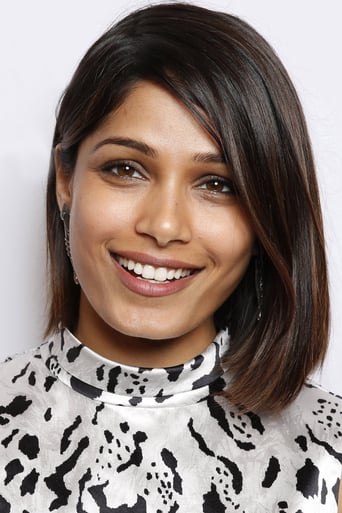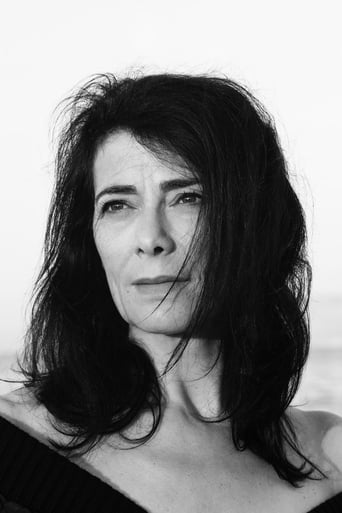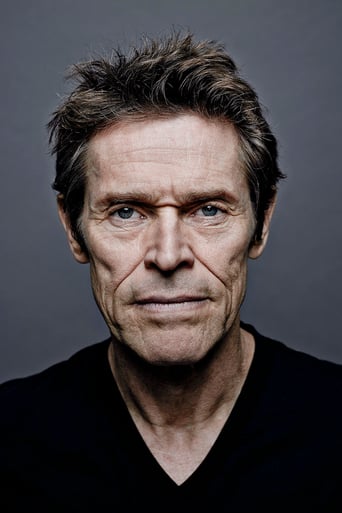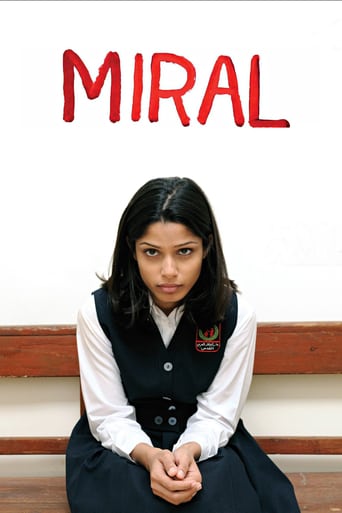
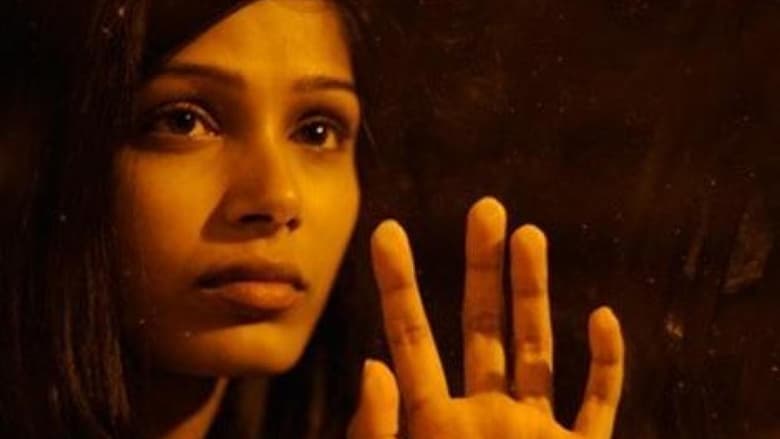
Miral (2011)
A drama centered on an orphaned Palestinian girl growing up in the wake of the first Arab-Israeli war who finds herself drawn into the conflict.
Watch Trailer
Cast


Reviews
"I will do everything in my power to make sure they never get a state. There is place only for one state on the land of Israel. We do not believe in a two-state solution." - Danny Danon (Israeli Minister of Defense) "Flatten all of Gaza! The Americans didn't stop with Hiroshima – the Japanese weren't surrendering fast enough, so they hit Nagasaki too. There should be no electricity in Gaza, no neighbourhoods, no gasoline or moving vehicles, nothing. There is no middle path here." - Gilad Sharon "The essential nature of Judaism resists the idea of a Jewish state with borders, an army, and a measure of temporal power, no matter how modest. I am afraid of the inner damage Judaism will sustain, especially from the development of a narrow nationalism within our own ranks, against which we have already had to fight strongly, even without a Jewish state." - Einstein Based on a semi-autobiographical novel by Rula Jebreal, Julian Schnabel's "Miral" opens at a Christmas Day celebration. It is 1947, and Hind al-Hussein (Hiam Abbas), a member of Palestine's upper class, is mingling with wealthy expatriates within Jerusalem. All seems well in her world, until Israeli forces begin committing massacres, most notably at the village of Deir Yassin. Hind takes the orphans of this massacre into her palatial family estate, which she promptly turns into the orphanage of Dar Al-Tifel. Pretty soon over three quarters of a million Palestinians are being expelled from their villages by the ethnic cleansing which accompanies Israel's declaration of statehood. Hind tries to help, but finds herself overwhelmed.Schnabel's film then delves into the life of Miral (Freida Pinto), a young girl who grows up in Hind's orphanage. Miral becomes interested in politics, radicalised, and begins to protest Israel's various occupations and land thefts. Spurred by injustice, she embraces Palestinian nationalism, but to no avail. The film points to the dead-end of Palestinian nationalism, but can't offer any other solution."Miral" is choppy and rife with clichés, but is brave in adopting a Palestinian point-of-view. Today, our entire cultural milieu marginalises Palestinians or even outright denounces their right to exist. Coupled to this is Israel's insistence that Palestine "recognise Israel". But which Israel does it wish be recognised? Israel never declares its own borders. Should the Palestinians accept the lines proposed by the 1948 UN Partition Plans or the one that extends to the 1949, post-war Armistice Line? Does Israel include the West Bank and East Jerusalem, which it has occupied in violation of international law for 40 Years? And why should the Palestinians recognise an Israel that refuses to accept international law, submit to UN resolutions or accept Palestinians expelled from their homes in the 1940s? Masking its own anxieties (the UN security council never rubber stamped Israel's own "right to exist"), Israel wants Palestine not only to endorse its existence, but to legitimise the violence directed at the Palestinian people. Meanwhile, Israel continues to scuttle peace talks, fans Hamas-Fatah conflicts and spurs in-fighting within Palestinian camps by supporting, as far back as the 1960s, right-wing Islamic factions. "Miral" denounces violence and urges Palestine to play nice, but Palestine has been doing this for decades. All the while, more land is appropriated by Israel.Julian Schnabel's aesthetic is choppy and frenetic. His film is at its best when playing with the metaphors from Jebreal's novel. Miral, for example, is named after a desert flow, emblematic of a Palestine which wishes to blossom and grow. Israel, of course, views this flower as a weed; a wild plant which must be extinguished.7/10 – Worth one viewing. See Yoav Shamir's "Checkpoint".
I love a movie that does everything right—dialog, cinematography, acting, plot, redeeming value, relevance—and Miral is just that movie.Miral is a must-see. And for those of you with an aversion to subtitles, there are only a few, so you will be fine. Based on Rula Jebreal's novel about her own life, the movie walks us through the inception of the State of Israel and the ensuing escalation of the Palestinian conflict that followed, all through the eyes of a young girl whose life is shaped by that conflict rather than by her own goals and aspirations.I have to say something here. If someone's real life is filled with people dying, torture, and deceit, and the person telling the story is always the victim or always did the right thing in a sea of others who didn't, one has to wonder. I just don't believe her when she talks about how she behaved when she was picked up by the army. Sorry. Maybe it's not that important, but when something doesn't pass the smell test, you have to acknowledge it. Her story is a self-serving litany of justifications for her decisions, one of which cost someone their life.A recurring theme in Miral is displacement and the carnage that results from it. Miral and her mother were displaced, and her Palestinian people were displaced. We all learn from this film that displacement kills hope faster than the Israeli flag was designed after they took the land.There are many dissonant messages in the film that make it one of the best movies of the year thus far. Perhaps the most important of these is the movie's portrayal of a fabulous girl's school (which is still standing) that educates young female minds from behind a hedge of denial of events outside its walls. It's like The Secret Garden, but somehow that's believable. There can be no hope for peace in the Middle East if oases of normality can't exist amid seas of insanity.Some will say the story is all about Miral, but I think her father, Jamal, is an equally important character with much more to teach. Jamal is a forgiving man, but Miral mistakes his forgiveness for weakness and denial. She thinks he's hiding behind a God that has forsaken them, but he's not. He is choosing forgiveness and focusing on what he finds important, which is Miral herself. Everyone should have a parent like that. And we should all understand that it's our choice to forgive or fight, and that one must weigh the consequences of each option before making the choice. Alexander Siddig portrays Jamal perfectly, slowly, without much dialog but with ever so much emotion. Why don't we see him more?The story moves quickly and covers a large stretch of time, but you never feel rushed, or that you missed anything. That's hard to do when your story spans fifty years in two short hours. I never really understood the genesis of Israel, or how it came into being so quickly. It's like Los Angeles, a city that grew too fast to allow for city planning, and they have been struggling with the consequences ever since. No solutions can be implemented when you take land away from entire people to make room for their arch enemies, just band aids.I know I've said this before about other films, but this is another one of those movies that should be shown in schools, in homes, in the Knesset, and anywhere else where people are sure of their point of view about who is right and wrong in this conflict. I wonder what would happen if it were required viewing for all Palestinians and Israelis.Julian Schnabel is a wonderful director, so wonderful that no one part of the movie stands out as his. He just wove the tale, brilliantly and sensitively, and a grateful nation or two should thank him. On behalf of mine, thank you. Please go see it. Take someone with you who is sure that Israel is totally right or that Israel is totally wrong, and then go to a coffee shop and talk about it.
A drama centered on an orphaned Palestinian girl (Freida Pinto) growing up in the wake of Arab-Israeli war who finds herself drawn into the conflict.You might wonder: Freida Pinto is Indian, so why was she cast as Palestinian? -- Some critics took exception to this, or the idea that she is too beautiful to play an ordinary girl. Are ordinary girls not allowed to be beautiful? And while her Indian heritage may seem out of place, I think this should be overlooked in light of the fact she is a tremendous actress and sold the character well.What is so great about this film is that the politics are not the issue. The life of a young girl is. This is a film that shows the humanity of the Palestinians -- the DVD cover asks if Miral has the "face of a terrorist". After seeing the film, you have to say no. While the story covers a wide swath of history, from 1947 to the 1993 Oslo agreement, the politics are not the problem.Schnabel tells me many of the critics were negative, and I do see some complaints that the editing was choppy, or the bizarre remark that Schnabel does not know how to direct women. Presumably many critics took exception to the positive portrayal of the Palestinians and the negative portrayal of the Israelis.In fact, though, this is how one might view the film if looking for a certain angle. The Israelis are presented negatively, yes, but not inaccurately. But the Palestinians are not really presented positively -- just as human beings. There is still a father telling her daughter not to get mixed up with the PLO, and one scene has a stepfather raping his wife's daughter. That can hardly be seen as being positive (though the real point here is that people should be judged as individuals, not as members of a group).The cast is all excellent, with plenty of Arab flavor. We have Willem Dafoe (a native of my city, Appleton) and Vanessa Redgrave for the "white" aspect. And then Alexander Siddig, probably best known as Bashir from "Star Trek", somewhere in-between (Siddig was born in Sudan, but was educated in London).The film is PG-13, making it less raw but more accessible to audiences. This may have toned down the realism a bit, but it in no way compromised the emotional outreach that was a steady undercurrent.Geoffrey Macnab calls the film "courageous and groundbreaking", while Mike Goodridge calls it "sincere and thought-provoking". Both are correct. The more unusual comment comes from Claudia Puig, who says, "Schnabel puts his unmistakable dreamlike stamp on the film." Now, Schnabel is first and foremost a painter, so his goal is art. But to call this film "dreamlike" just seems off. This struck me as pure realism all the way. But who am I to judge? Anyway, great film, and one that will be sure to spark discussion regardless of which side (if any) you stand on in the ongoing Middle East debate.
With a few caveats "Miral" is a rather good movie. It shows things from the Palestinian perspective and does leave out an important point or two ... but again in general it's pretty good cinematic experience.The development of a young lady named Miral is the main subject here. The film is based on an autobiographical novel by Rula Jebreal. Miral is Palestinian and she attends a school that some might consider a privileged place for a Palestinian. She is very lucky to get the type of education offered at the school. The school is a boarding school and is also an orphanage. It is run by a wonderful lady.The author, Rula Jebreal, is a journalist. She attended university in Italy and was a journalist there for over decade. After that she worked for a Cairo TV station.There is quite a bit of "setup" in the film before the main character Miral appears. You just have to wade through it because it's quite necessary to build the foundation before this particular house can be built.Even though there are multiple issues of importance to women raised by the film I suspect that creative men will be interested in most all of the film. I'm a guy and I liked it.The main issue in the film is how Miral's attitude towards and approach to the Israeli/Palestinian struggle will develop. It's a complex subject and the film likewise is complex. Overall the film acquits itself quite well is this area.OK. Let's get to the controversial stuff. The movie portrays the situation from the Palestinian perspective. Once or twice it leaves out an important point and that omission gives an "advantage" of the Palestinian side of the "argument." However in another case it really should provide a tiny bit more historical info to make the portrayal of the circumstances surrounding the founding of the school/orphanage more credible. Let's tackle that bit first.The school/orphanage is founded because a wonderful lady finds a group of orphans in the street who say their parents were all killed without reason. The scene just didn't seem believable to me ... until I looked up the Deir Yassin massacre. It really happened and those kids are (part of) the subject matter of this film. Again, it was called the Deir Yassin massacre. Look that one up (try haaretz.com). The film should have mentioned that incident by name in a later scene for increased credibility.OK. Now the flip side of the coin. The school/orphanage grows greatly because of the 1948 Arab-Israeli War that started the day after Israel declared its independence and sovereignty. Nowhere is it mentioned in the film that in that war the Arab nations were the first to move across national boundaries ("they started it"). More balance is needed on this point.Another point omitted in the film occurs in an important scene where the Israeli army is tearing down a Palestinian house. I could be wrong about this, but they typically do this when someone has committed a really bad terrorist act. That persons house (or their parents house) is then destroyed. When the house is torn down in the movie no context/reason is given whatsoever. For a film that is trying to balance things this a noticeable omission.One high circulation newspaper said that the film was a "slanderous and shameful piece of propaganda." That's just totally wrong. To me it is sensitive and complex. Another newspaper review said the movie had a "disdain for details." On the contrary, it gets the details right with the caveats noted above. The Guardian said "Freida Pinto looks uneasy and miscast as Miral herself." Ms. Pinto's acting is quite good. The only problem there is that her skin tone is a 1/2 shade to dark. I REALLY doubt that most folks with white skin will notice that "problem." The Village Voice said it was "at-odds-with-itself" and was a "partisan work." The only sense that the film is "at-odds-with-itself" is that the title character's response to the Israeli/Palestinian struggle changes over time. The work is told from the Palestinian point of view ... that makes it partisan? Give me a break! What crap! On the other hand the use of plaintive violin music is a bit overdone in the film.Let's get real here. It distinctly appears that the reason that people might typically review this film poorly is that they don't like that a story is being told from the Palestinian point of view.I understand that this is an incredibly tough problem, but to quote Rodney King "Can't we all get along?" Unfortunately the situation seems quite insoluble.


